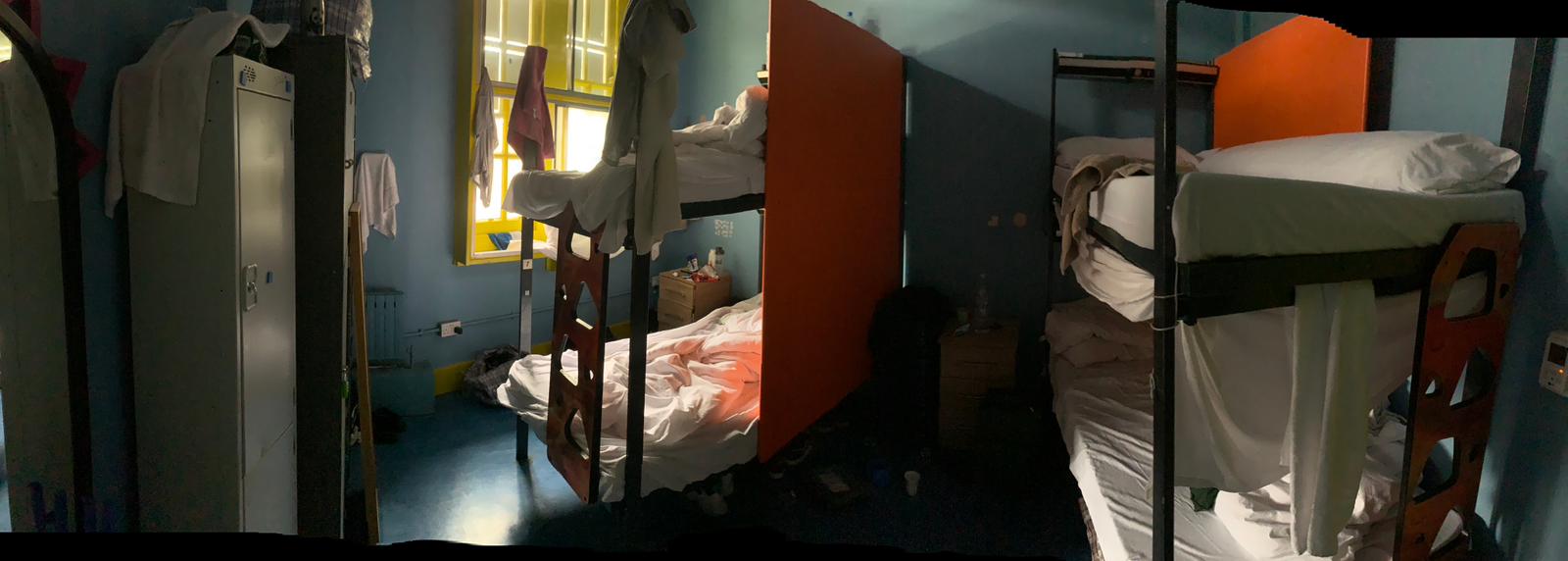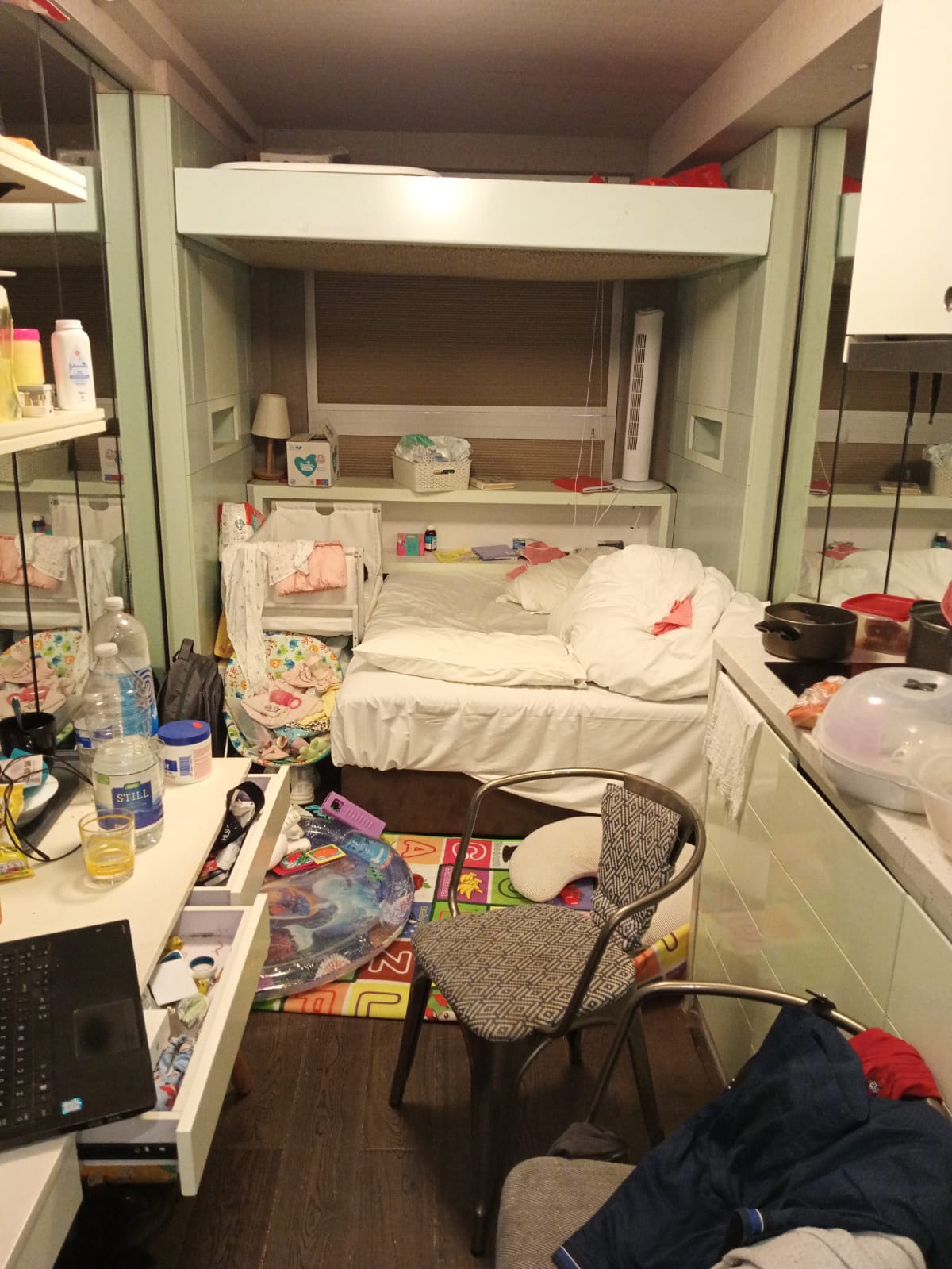‘Squalor’ of cramped rat-infested Home Office asylum seeker hotels revealed
Asylum seekers suffering from malnutrition from microwave meals in Home Office hotels
Your support helps us to tell the story
From reproductive rights to climate change to Big Tech, The Independent is on the ground when the story is developing. Whether it's investigating the financials of Elon Musk's pro-Trump PAC or producing our latest documentary, 'The A Word', which shines a light on the American women fighting for reproductive rights, we know how important it is to parse out the facts from the messaging.
At such a critical moment in US history, we need reporters on the ground. Your donation allows us to keep sending journalists to speak to both sides of the story.
The Independent is trusted by Americans across the entire political spectrum. And unlike many other quality news outlets, we choose not to lock Americans out of our reporting and analysis with paywalls. We believe quality journalism should be available to everyone, paid for by those who can afford it.
Your support makes all the difference.A refugee undergoing cancer treatment who was diagnosed with malnutrition is one of a number of people living in shocking cases of “squalor” in Home Office hotels.
Families are forced to live in tiny hotel rooms, which are in some cases infested with rodents, and vulnerable single asylum seekers are forced to share bedrooms leading to them sleeping in the corridor, research by the charity The Helen Bamber Foundation has found.
The Home Office spent £3.1bn on hotels in 2023-24, and at the end of December 2023 there were nearly 46,000 people in this accommodation. A new study from The Helen Bamber Foundation documented the experiences of 58 people living in London hotels and their 23 family members, as well as analysing clinical data from 110 asylum seekers.
They found that asylum seekers living in hotels had higher levels of depression compared to those living in alternative housing, such as temporary flats. Asylum seekers live in Home office-funded hotels for an average of six months, and are given less than £9 per week to survive on. This leaves them dependent on hotel food, which is often lacking in nutrition.


One asylum seeker, who was undergoing radiotherapy for a rare form of cancer, developed “disease-related malnutrition” partly as a result of the conditions in his hotel. His oncology dietician noted that the refugee lived in a hotel and has “no access to suitable foods to maintain stable weight during treatment,” adding: “Current dietary intake causing abdominal pain and gastrointestinal issues”.
In a later oncology review, it was noted that he had contracted scabies again and was still living in the hotel. Despite this the asylum seeker has not been moved and is instead facing imminent eviction, the report noted.
Families supported by the charity also reported living in mouldy rooms, dealing with rotten carpets, unclean bedding, mice and bed bugs. One of the people interviewed by the charity had rats running through his accommodation and he frequently found dead animals in his room.


One family of three, two adults and their nine-month-old baby, have been living in a small cramped hotel room for almost a year, and have been refused a relocation request. And another young asylum seeker was forced to share a hotel room with a stranger resulting in him sleeping on an armchair in the corridor every night to feel safe, the report said.
The report, titled ‘Suffering and squalor: The impact on mental health of living in hotel asylum accommodation’, found that food was rarely freshly cooked and consisted of microwaveable meals that were low on nutrients. In one case, church members were cooking meals for a woman who had been losing weight in the hotel, but she was not allowed to heat up the meals. She has continued to lose weight, with her GP attributing this to lack of food in the hotel, the report said.
A Home Office spokesperson said: “We take the health and wellbeing of asylum seekers seriously and at every stage in the process seek to ensure that all needs and vulnerabilities are identified and considered, including those related to mental health and trauma.”

Join our commenting forum
Join thought-provoking conversations, follow other Independent readers and see their replies
Comments